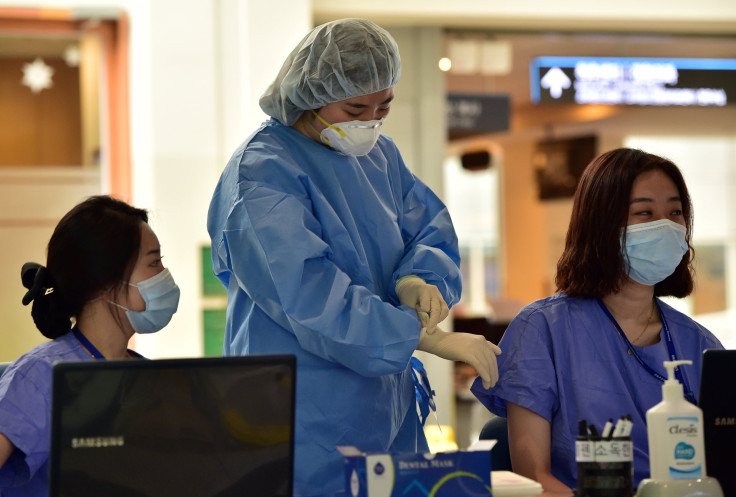MERS Outbreak Hits South Korea Economy, GDP Growth At 6-Year Low

South Korea’s economic growth was sharply hit by the spread of the Middle East Respiratory Syndrome (MERS) and weak exports, reports said Thursday, citing the country's central bank. The East Asian country's gross domestic product grew 0.3 percent in the last three months compared to 0.8 percent in the first three months of the year, recording a six-year low.
Bank of Korea Governor Lee Ju Yeol said that the economic impact of MERS will be seen through August despite no new cases being recorded since July 4, and that the turnaround would take place only after companies and consumers start spending again, Bloomberg reported. Since May 20, when the virus was first reported in the country, 36 people have died and 186 have been infected. The outbreak also took a toll on the country’s tourism sector and consumer spending.
The South Korean economy grew 2.2 percent in the June quarter from a year earlier, lesser than the 2.3 percent forecast by economists.
"There is a chance things will turn around in the third quarter but it will be tough for the economy to grow by over 1 percent as the government currently hopes because exports are still bad," Huh Jae-hwan, an economist at Daewoo Securities, said, according to Reuters, adding: "Things might improve from the June quarter, but it won’t be easy for the economy to make a meaningful comeback."
Lee and his policy board cut key interest rates four times since last August to 1.5 percent to boost economic activity. The rate cuts have given way to higher debt, with bank lending to households increasing 8.1 trillion won ($7 billion) last month, but the country’s financial regulator said that it will put forward stricter credit standards for those seeking loan to limit the risks from the excess household debt.
“Consumption should rebound this quarter as people shake off fears on MERS, but this is just a base effect and not a meaningful improvement,” An Ki Tae, a Seoul-based economist at NH Investment & Securities Co., told Bloomberg, adding: “I don’t think the BOK will respond to slow growth with another rate cut as inflation is gradually starting to pickup.”
Domestic consumption in the country took a hit while the number of tourists dropped over 40 percent in June since the May outbreak of the disease, BBC reported. James Rooney, chairman of Market Force Company, said these numbers may not improve until later this year. "The growth rate is worse than expected," he told BBC, adding: "We have to expect that the next quarter is also going to be negatively impacted."
Moreover, private sector consumption fell 0.3 percent in the second quarter from the previous period, while government spending and construction investment increased 0.7 percent and 1.7 percent, respectively, Bloomberg reported.
© Copyright IBTimes 2024. All rights reserved.






















